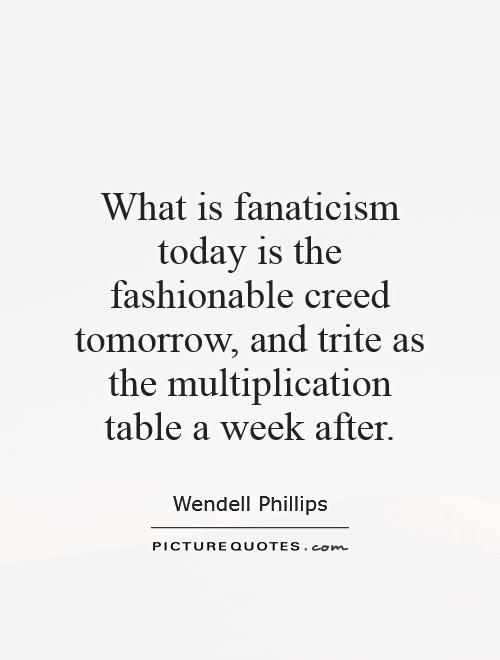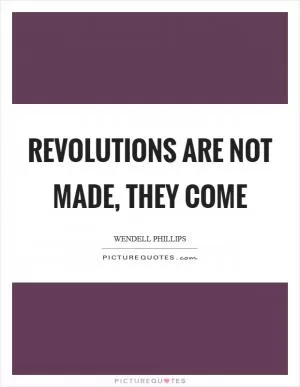What is fanaticism today is the fashionable creed tomorrow, and trite as the multiplication table a week after

What is fanaticism today is the fashionable creed tomorrow, and trite as the multiplication table a week after
Wendell Phillips, a prominent American abolitionist and advocate for social reform in the 19th century, understood the fickle nature of public opinion and the tendency for once radical ideas to become mainstream. His quote, "What is fanaticism today is the fashionable creed tomorrow, and trite as the multiplication table a week after," speaks to the cyclical nature of societal beliefs and the rapid pace at which ideas can shift from radical to accepted.In Phillips' time, the issue of slavery was a deeply divisive and controversial topic. Those who advocated for the abolition of slavery were often seen as fanatics, pushing against the entrenched beliefs and practices of society. However, as the abolitionist movement gained momentum and public opinion began to shift, what was once considered radical became the fashionable creed of the day. The same can be said for other social movements throughout history, such as women's suffrage, civil rights, and LGBTQ rights. Ideas that were once seen as extreme or radical eventually become accepted as common sense.
Phillips' quote also highlights the fleeting nature of public opinion. Just as quickly as a once radical idea becomes mainstream, it can also become trite and commonplace. The example of the multiplication table, a basic mathematical concept that is universally accepted and understood, serves as a metaphor for how quickly ideas can lose their edge and become mundane.












 Friendship Quotes
Friendship Quotes Love Quotes
Love Quotes Life Quotes
Life Quotes Funny Quotes
Funny Quotes Motivational Quotes
Motivational Quotes Inspirational Quotes
Inspirational Quotes